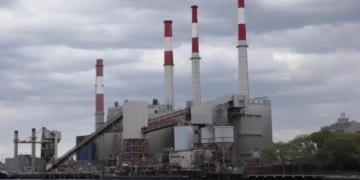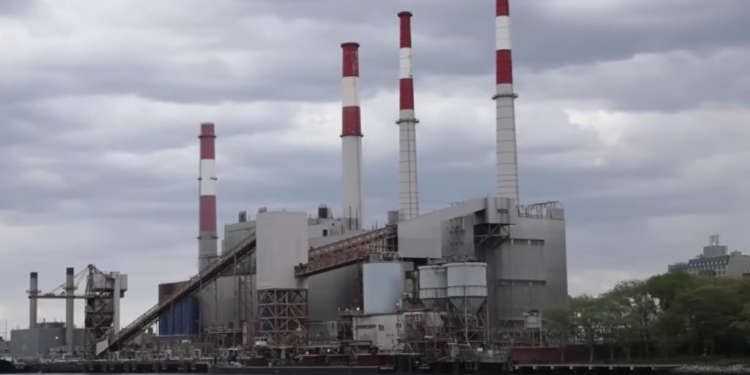Even as the Biden administration’s regulatory agencies are moving to render the building of new natural gas power plants too costly to justify, a consensus has formed in the analyst community that the added power demands from AI will require a big expansion of natural gas generation to ensure grid stability.
Over a span of less than 20 days in April and May, Biden regulators at the Environmental Protection Agency(EPA) and the Federal Energy Regulatory Commission(FERC) published new regulations that, according to grid expert Robert Bryce, add more than 1 million words targeting natural gas to the federal register.
On April 25, the EPA finalized new power plant emission rules that will essentially force the retirement of America’s remaining coal-fired power plants by 2030 by rendering them too costly to continue operating. Most media reports focused on that aspect of the new regulations, which had been anticipated.
Reporters gave less attention to the fact that the new rules also constitute a clear effort to make it nearly impossible to finance and operate additional gas-fired power plants over the same time. The requirement that new gas plants be accompanied by costly carbon capture and storage (CCS) capability adds millions in additional costs and would also consume as much as 30% of the power generated by the plants, greatly diminishing their profitability. The fact that some operators have already tried and failed to add CCS to at least five such plants in the United States leads to an almost inevitable conclusion that this rule is intentionally structured to shut down the natural gas power industry in this country.
On May 13, the FERC rules added hundreds of thousands of more words targeting natural gas with its Order 1920. Where the EPA rules make it vastly more expensive to build and operate natural gas power plants, FERC Order 1920 makes it more costly and difficult to permit transmission lines needed to carry their electricity to market. FERC does this by discriminating between generation sources, streamlining and incentivizing permitting for power lines that are connected to wind and solar projects.
It is a regulatory pincer move designed to force generation companies to invest in wind and solar to the exclusion of natural gas generation, one that Bryce says “will strangle AI in the crib.” Rapidly expanding power loads will require a generation source that is reliable 24 hours, seven days each week, one that can be rapidly dispatched to meet demand surges that take place every day. Only natural gas can reliably fill that breach.
A series of recently published analytical studies support Bryce’s case. A Goldman Sachs analysis published in mid-May estimates that natural gas is the most fit generation tech to meet about 60% of the incremental demand load by 2030. Tudor Pickering & Holt estimates that meeting the new demand could require the building of as much as 8.5 bcf/day of new natural gas generation capacity over the same time frame.
Bryce quotes from a Morningstar report that pegs the additional gas demand at 7 to 10 bcf/day. He also refers to an Enverus study that concludes that power demand from AI and other data centers will double by 2035, requiring an additional 4.2 bcf/day of new natural gas generation by that time for their needs alone.
“This type of need demonstrates that the emphasis on renewables as the only source of power is fatally flawed in terms of meeting the real demands of the market,” Richard Kinder, executive chairman of pipeline operator Kinder Morgan, told analysts during the company’s first-quarter earnings in April, as reported by CNBC.
Seldom do we see a consensus so broad and diverse as this emerge on any topic in the energy space, yet the Biden regulators at EPA, FERC and other relevant agencies appear to be impervious to having their green energy fantasies interrupted by such pesky realty. They have one goal, which is to finalize as many new regulations negatively impacting the coal and oil and gas industries as possible before time runs out on the administration’s first term.
In that mad rush to consolidate authoritarian control, any and all inconvenient facts are to be ignored. This will not end well.
David Blackmon is an energy writer and consultant based in Texas. He spent 40 years in the oil and gas business, where he specialized in public policy and communications.
The views and opinions expressed in this commentary are those of the author and do not reflect the official position of the Daily Caller News Foundation.
Featured image: (Screen Capture/CBS Evening News)
All content created by the Daily Caller News Foundation, an independent and nonpartisan newswire service, is available without charge to any legitimate news publisher that can provide a large audience. All republished articles must include our logo, our reporter’s byline and their DCNF affiliation. For any questions about our guidelines or partnering with us, please contact [email protected].



























 Continue with Google
Continue with Google